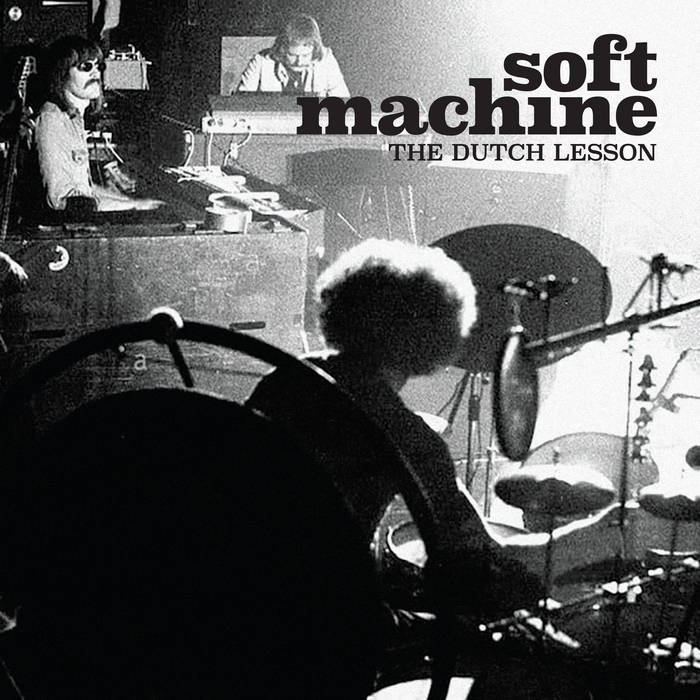- soft machine: the dutch lesson
(2023, 2cd, usa, cuneiform)
Earlier this year, Soft Machine did a short tour with members John Etheridge (guitar), Theo Travis (sax), Fred Thelonious Baker (bass) and Asaf Sirkis (drums)
"The Dutch Lesson" takes us back to 1973, to a concert in The Netherlands with Roy Babbington (bass), Karl Jenkins (sax), John Marshall (drums), and Mike Ratledge (organ).
An excellent album.
From the liner notes:
By 1973 Soft Machine already had a long history of playing in Rotterdam, appearing at major festivals such as Hippy Hippy Fair (1967), Kralingen (1970) and AHOY (1971, Phil Howard’s debut), and no less than four times at the city’s most prestigious venue, De Doelen, most recently (in September 1972) on a double bill with Robert Wyatt’s Matching Mole. This time, however, they were booked in a smaller venue, which they filled to capacity at around 400. Part of an arts complex originally known as Ons Huis, De Lantaren had recently been renovated into a theatre and music venue.
In attendance that October night was Bert Boogaard, a record store owner at the time, sitting in the front row with a Uher portable tape machine, and we have him to thank for this excellent ambient recording of the performance, only marred by occasional saturation in the drums. But Boogaard can be excused for not anticipating how powerful and loud John Marshall’s playing would be. This recording contains some of his most unashamedly “rock” drumming, likely egged on by Roy Babbington’s frequent use of a fuzz pedal on his bass, a long-time Soft Machine signature.
The band as a whole is a real powerhouse, nowhere better exemplified than on the encore, an infectiously funky fuzz organ-led jam based on the “Gesolreut” riff. Generally the tempos are much faster than usual, making the originals feel leisurely in comparison (“37½” is a case in point), and even when they aren’t, as with “The Soft Weed Factor,” an unexpected switch to double time makes up for it.
Released on the Cuneiform record label.

No comments:
Post a Comment